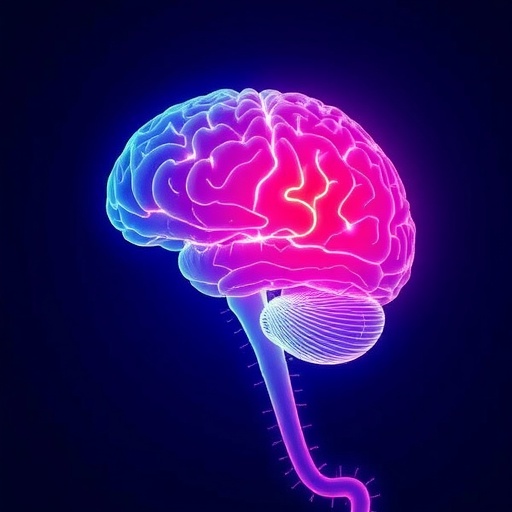In a groundbreaking study poised to deepen our understanding of women’s health, researchers have unveiled compelling evidence linking early menopause and diminished cardiac function to worsening brain health. This pioneering investigation, presented at the 2025 Annual Meeting of The Menopause Society in Orlando, marks a significant leap forward in unraveling the intricate connections between cardiovascular performance, menopause timing, and cognitive decline, especially with regard to Alzheimer’s disease risk.
Cardiovascular health plays an undeniably vital role in maintaining optimal brain function. The heart’s ability to efficaciously pump blood is essential for delivering oxygen and nutrients that sustain neural tissue integrity and cognitive processes. When cardiac function is compromised, specifically through reductions in left ventricular ejection fraction, the ensuing lowered cerebral perfusion precipitates subtle yet damaging effects on brain structures. These can range from silent infarcts—so-called silent strokes—to increased accumulation of white matter hyperintensities, both of which are recognized as harbingers of dementia.
Women, uniquely, bear a dual vulnerability. Beyond the well-known fact that they face a higher overall prevalence of cardiovascular disease and Alzheimer’s disease compared to men, emerging data implicates the timing of menopause as a critical factor affecting neurological outcomes later in life. Early menopause, defined as the cessation of ovarian function before the age of 45, deprives the brain of neuroprotective hormones such as estrogen for a prolonged period. This hormonal deficit is increasingly implicated in accelerating brain aging, cognitive decline, and elevated risk for Alzheimer’s dementia.
Despite extensive prior research establishing the impact of either menopause timing or cardiac function individually on brain health, little has been explored about their combined effect—until now. By enrolling over 500 women into a comprehensive study encompassing cardiac assessments, neuroimaging, and cognitive evaluations, scientists have illuminated how these two factors intersect to compound adverse brain outcomes. The study meticulously employed cardiac magnetic resonance imaging (MRI) to measure resting left ventricular ejection fraction, ensuring precise quantification of cardiac function.
Simultaneously, participants underwent brain MRI scans to calculate gray matter volume—integral for memory and executive function—and to assess white matter hyperintensity burden, which reflects small vessel cerebrovascular disease and brain tissue injury. Cognitive performance was rigorously evaluated through standardized neuropsychological testing batteries, capturing multiple cognitive domains ranging from memory to attention and processing speed. Crucially, the analysis accounted for numerous confounding variables, including age, ethnicity, educational background, hormone therapy use, and the cause of menopause, whether surgical or spontaneous, as well as cardiometabolic factors such as visceral adiposity and blood pressure.
Strikingly, the findings revealed that early menopause exacerbates the negative impact of reduced cardiac output on both brain structure and cognitive capacity. Women who experienced menopause earlier and had diminished left ventricular ejection fraction demonstrated significantly lower gray matter volume and increased white matter lesions compared to their counterparts who underwent menopause later. These neuroimaging changes correlated closely with poorer scores on cognitive tests, suggesting a tangible clinical manifestation of this compounded vulnerability.
Such revelations highlight that heart and brain health do not operate in isolation but are intricately linked, particularly within the female physiological context shaped by reproductive aging. Earlier cessation of ovarian hormone production may sensitize the brain to the detrimental effects of even modest impairments in cardiac function, potentially accelerating pathological processes leading to dementia. These results underscore the imperative to adopt sex-specific perspectives in dementia research and preventive strategies.
“This study addresses a critical gap in women’s health, emphasizing how early menopause interacts with cardiovascular health to influence brain aging trajectories,” said Tallinn Splinter, lead author and investigator at the University of Toronto and the Sunnybrook Research Institute. “By integrating cardiac imaging with neurocognitive assessments, our research provides novel insights that could pave the way for targeted interventions aimed at mitigating dementia risk in women who experience early menopause.”
From a clinical standpoint, this underscores the need for heightened surveillance and tailored therapeutic approaches in women undergoing early menopause. Interventions that preserve or enhance cardiac function might offer protective benefits against cognitive decline in this vulnerable population. Additionally, hormone replacement therapy and cardiovascular risk management strategies warrant further exploration as potential modulators of this complex interplay.
Dr. Stephanie Faubion, medical director at The Menopause Society, elaborated on the broader implications, stating, “Incorporating sex-specific factors like age at menopause into dementia risk models is essential for developing precision medicine frameworks. Women’s health research must evolve to reflect these nuanced interdependencies, ensuring that prevention and treatment paradigms effectively address the lived realities of women across different life stages.”
As the dialogue around brain health continues to evolve, such multidisciplinary research exemplifies how merging cardiology, neurology, and endocrinology can yield transformative discoveries. The findings presented at the 2025 Annual Meeting are poised to catalyze further investigation and innovation aimed at curtailing the enormous societal burden posed by Alzheimer’s disease and other dementias, particularly among women.
The study’s robust methodology, incorporating sophisticated imaging modalities and comprehensive cognitive testing while adjusting for confounders, lends considerable weight to its conclusions. Moreover, its focus on early menopause—a critical yet underappreciated factor—adds a vital dimension to ongoing research into women’s cognitive aging.
Public health initiatives and clinical guidelines are likely to be impacted as awareness grows regarding how early menopause and cardiac health converge to influence neurodegeneration. Healthcare providers should consider integrating menopause history and left ventricular function assessments into routine evaluations to identify individuals at elevated risk and implement timely interventions.
Ultimately, this research spotlights an important, often overlooked nexus in women’s health. It advocates for a more holistic approach that recognizes the shared vulnerabilities of the heart and brain, especially within the context of hormonal transitions. Continued research in this domain holds promise for unlocking durable solutions to one of the most pressing challenges facing aging populations worldwide.
Subject of Research: People
Article Title: The Combined Influence of Earlier Menopause and Cardiac Function on Brain Health
News Publication Date: October 21, 2025
Web References: http://dx.doi.org/10.1097/GME.0000000000000002541
Keywords: Health and medicine




